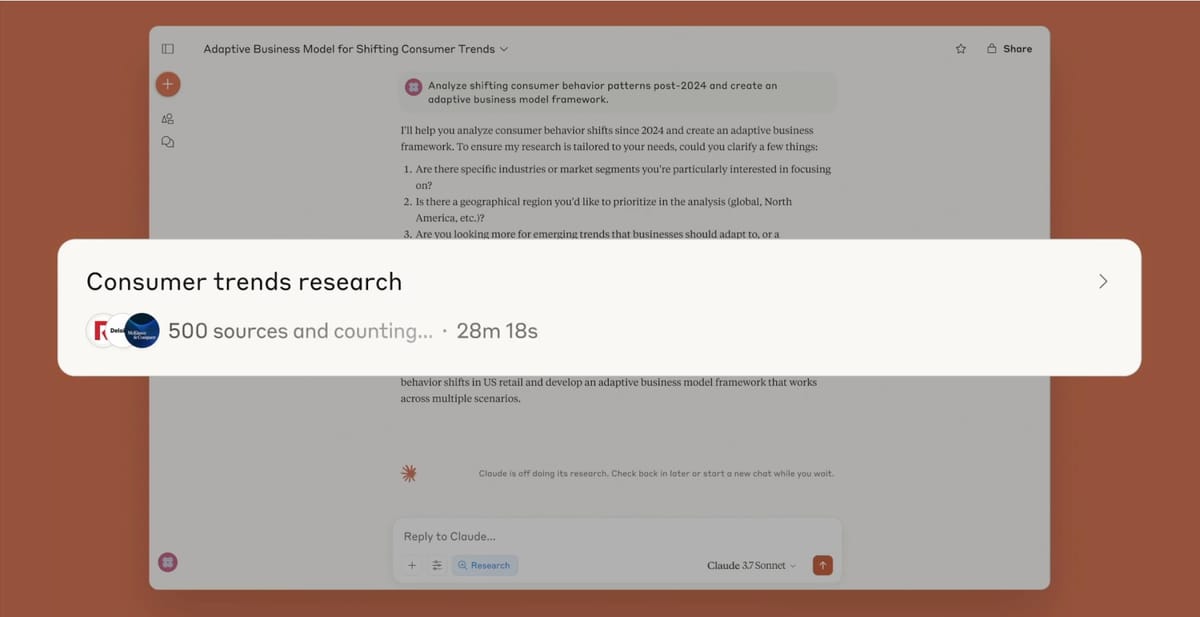Claude has just leveled up. Today, Anthropic unveiled Integrations, a new framework that lets its AI assistant plug directly into the tools teams already use, and an advanced Research mode that conducts deep investigations across multiple data sources for up to 45 minutes before producing a comprehensive, citation-backed report.
Key Points
- Claude can now connect to popular services like Jira, Zapier, and Asana via open “Integrations.”
- A new advanced Research mode lets Claude search the web, Google Workspace, and your integrations for up to 45 minutes, delivering fully cited reports.
- Integrations and deep Research are available in beta on Max, Team, and Enterprise plans today, while web search is now globally live for all paid users.
Integrations builds on last November’s Model Context Protocol (MCP), an open standard for linking AI models to external tools and data. Until now, MCP support was largely confined to local Claude Desktop setups. With today’s launch, developers can spin up remote MCP servers on the web, and users can browse, connect, and swap between any number of these to feed Claude real-time context about projects, tasks, and organizational knowledge.
At launch, Anthropic has partnered with ten popular services: Atlassian's Jira and Confluence, Zapier, Cloudflare, Intercom, Asana, Square, Sentry, PayPal, Linear, and Plaid. The company promises more partnerships coming soon from companies like Stripe and GitLab. Developers can also create their own integrations, reportedly in as little as 30 minutes using Anthropic's documentation.
The partnerships enable some impressive workflows. With Zapier integration, Claude can access thousands of apps through pre-built automations, pulling data from services like HubSpot and preparing meeting briefs based on your calendar. Connected to Atlassian's tools, it can create multiple Confluence pages and Jira work items simultaneously. The Intercom integration allows Claude to analyze user feedback patterns and manage the entire workflow from feedback to bug resolution.
Perhaps more significant is the overhaul to Claude's research capabilities. The new "Advanced Research" feature takes Claude's ability to search for information and supercharges it with much deeper investigative powers.
When activated, Claude breaks complex queries into smaller components and investigates each part thoroughly before compiling a comprehensive report. While most research tasks complete within 5-15 minutes, Claude can spend up to 45 minutes on especially complex investigations—work that might take a human researcher several hours.
Research capabilities now extend beyond web search (which is now available globally to all paid Claude users) and Google Workspace to include any connected integrations. Every piece of information includes citations that link directly to original sources, making it easier to verify Claude's findings.
Both Integrations and advanced Research are rolling out today in beta on the Max, Team, and Enterprise plans, with Pro coming soon.

